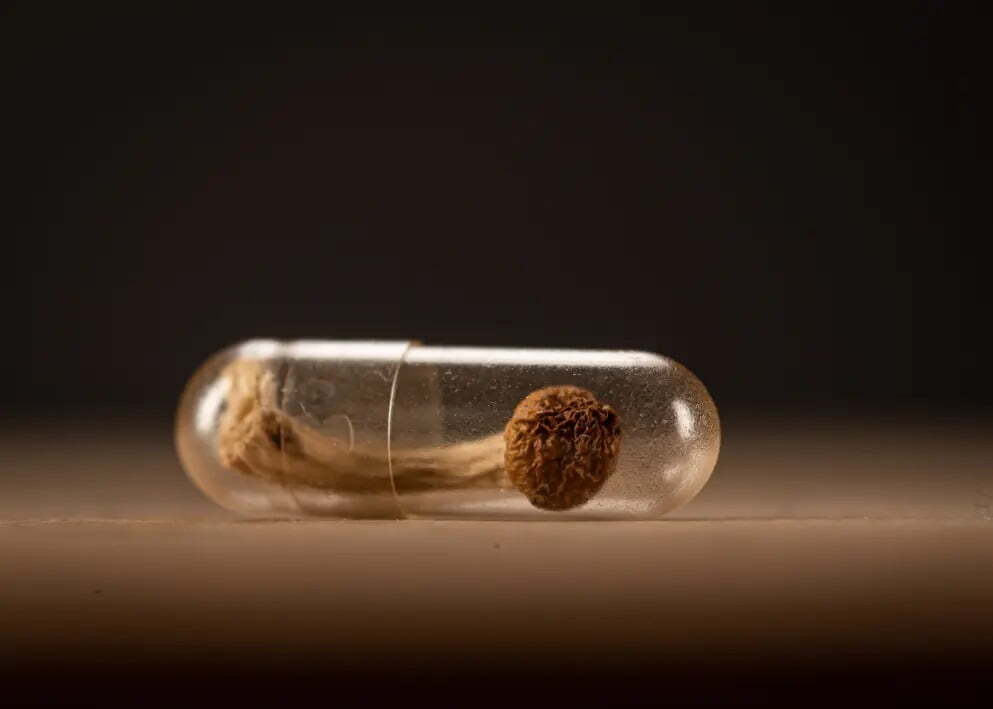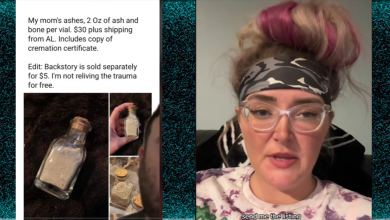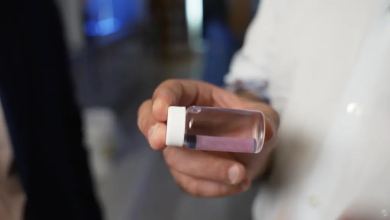Researchers claim magic mushrooms could treat depression, anxiety, and PTSD
In a world where traditional treatments for major depressive disorder (MDD) often fall short, a remarkable discovery is making waves in the field of mental health. Recent research published in the Journal of the American Medical Association has shed light on the potential of psilocybin mushrooms, renowned for their psychedelic effects, as a groundbreaking treatment for depression.
A Glimpse into the Psychedelic Frontier
The study, which involved 104 participants, sought to explore the therapeutic properties of psilocybin, the active compound found in psychedelic mushrooms. These brave souls embarked on a journey into the mystical realms of the mind, with half of them receiving a carefully measured dose of psilocybin, while the other half were given a placebo. But the journey didn’t end there. Psychological support was an essential companion throughout this experiment.
Beyond Traditional Treatments
Traditional treatments for depression, such as antidepressants and talk therapy, have their limitations. While they have undoubtedly helped many individuals, there remains a substantial population for whom these conventional approaches provide insufficient relief. This is where psilocybin shines with its potential to provide a fresh ray of hope.

The Promising Results
The results of the study were nothing short of astonishing. Participants who received psilocybin experienced significant and sustained reductions in depressive symptoms. It was as if a weight had been lifted from their shoulders, allowing them to breathe more freely. Not only did their symptoms improve, but they also regained their ability to function better in their daily lives.
A Novel Intervention
These findings point to psilocybin as a novel intervention for MDD. It’s like discovering a hidden key that unlocks a door to a brighter, happier future for those grappling with the heavy burden of depression. But the potential of psilocybin doesn’t stop there.
Expanding Horizons: Beyond Depression
While this study primarily focused on depression, the world of psychedelics holds promise for addressing a wide range of mental health issues. Psilocybin, along with other psychedelics, is gaining recognition as an effective tool for tackling conditions such as anxiety, post-traumatic stress disorder (PTSD), and even addiction.
Beyond Depression and Anxiety
Imagine a world where individuals burdened by anxiety or haunted by traumatic memories find solace in the gentle embrace of psilocybin. The potential for transformation is awe-inspiring. It’s as if a new path, illuminated by the soft glow of hope, is emerging from the darkness.
Breaking Free from Addiction
Addiction is a formidable opponent, but psilocybin offers a glimmer of hope for those ensnared by its grasp. The possibility of breaking free from the chains of addiction, whether it’s smoking, alcohol, or other substances, is a beacon of light on the horizon.

The Workplace Revolution
Intriguingly, some forward-thinking companies in the United States are pioneering a new approach to employee well-being. They are offering psychedelic therapy as an employee benefit, recognizing its potential to address the mental health needs of their workforce.
A Paradigm Shift
Picture this: a corporate world where employees have access to therapies that go beyond the confines of traditional healthcare. It’s a paradigm shift that challenges the status quo, offering employees alternative treatments for PTSD, anxiety, and depression.
Embracing the Future
In conclusion, the study on psilocybin’s potential in treating depression is a testament to the evolving landscape of mental health care. The healing powers of psychedelics, once relegated to the fringes of society, are now emerging into the mainstream as a beacon of hope for those in need.
FAQs
1. What is psilocybin?
Psilocybin is a natural compound found in certain species of mushrooms, known for its psychedelic effects. It has gained attention for its potential in treating various mental health conditions, including depression.
2. How does psilocybin treat depression?
Psilocybin appears to work by altering the brain’s neural pathways and promoting positive changes in mood and perception. It can lead to significant reductions in depressive symptoms and functional impairment.
3. Are there any risks associated with psilocybin therapy?
While research shows promise, psilocybin therapy should only be administered under controlled settings by trained professionals. It may not be suitable for everyone and can have side effects, so it’s essential to consult with a healthcare provider.
4. What other mental health conditions can psilocybin address?
Psilocybin therapy is being explored as a treatment for conditions like anxiety, PTSD, and addiction. Research is ongoing, and results are promising.
5. Is psilocybin therapy legal everywhere?
The legal status of psilocybin varies by location. Some regions have decriminalized it or allowed it for medical research, while others still consider it illegal. It’s essential to be aware of local laws and regulations.













Big pharma will shut this idea down quick
Currently being used in Australia now
It helps the mind to create new neurological pathways to deal with major life events gone bad so U can get over it and function again.
That sucks because I live in Canada I cannot see this… 😞
But I have known for a while that mushrooms are beneficial for many things. In my part of British Columbia they are very easy to find. 
Great do they have anything for an allergy to mushrooms so i can take the fucker
They knew this in the 70’s already xD
My old mate Hugo would return with his cigar shaped head
As the name implies, shrooms are magical and holistic, hit up GUZMAN_TRIPPER on Instagram, he’s my plug 🔌